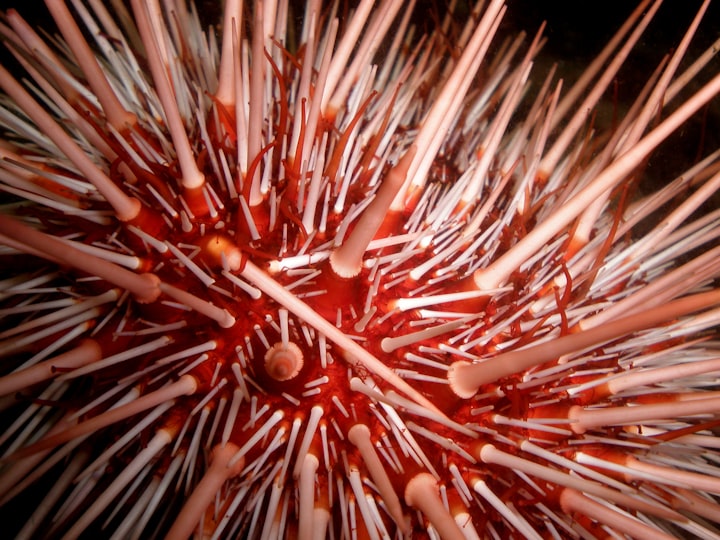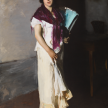
I never trusted myself to write my story, or even to tell it. But who knows when you might kick the bucket, especially when you’re sick. Shouldn’t you confide in someone? Shouldn’t you leave some kind of record behind, to make your mark? Jesus, too, was wary of writing things down. Not that I should be diagnosed with a Christ complex. I know I’m no great sacrifice.
I've always preferred listening to the stories of others. Sometimes I get so absorbed in them, I begin to disappear. In a pleasant, reassuring way. Of course, when the story is over I realize I hadn’t disappeared at all. I only felt, for a moment, as if I belonged somewhere—more so than I belonged in my own life.
People were always interested when I told them what I did for a living. "A psychotherapist?" they’d say, as if they never expected to meet one in person. Sometimes they wanted to know more, but usually they shied away from me. They must have thought I was a mindreader. Not that it would’ve interested me to read minds, if I could. People, when they know someone is paying really close attention to them, are all pretty much the same. Defensive.
In graduate school I studied animal behavior. I was especially interested in the flight reaction, which is the animal’s response to danger. Every species of animal, it turns out, has its own unique way of escaping a threat. Some fish glide through the air, others plunge into the depths of the sea. Some biologists think we’d still be single-cell organisms floating in the ocean if not for our impulse to escape one another.
I still find animals more sympathetic than humans. But, unfortunately, animals can’t pay bills, and for better or worse I’ve had to make money. And so I found myself working with humans. I haven’t worked on many remarkable cases—I sometimes think of them as variations on the same tired, overworked theme—but a few of them, the ones in which I thought I saw a glimmer of something, like an odd reflection in a distant window, have stuck with me.
There was a young woman, about twenty-five. A widow. She sat neatly on the couch across from me, her hands folded in her lap. This was a decade ago, at least—before I had to close my practice. Her skin had an unsettling, spotless pallor. Like a porcelain doll. A scar ran from the corner of her mouth down to her chin, giving her a perpetual half-frown. Her husband had died in a motorcycle accident. Hit by a firetruck. The city paid her an enormous sum.
“I had to change the channel. I saw—” she stopped.
“What did you see?” I said. A psychotherapist is trained to repeat a word or phrase that a patient has just spoken. This is more helpful than most people realize.
“I couldn’t watch anymore. There were flashing red lights, a siren. I guess I should stop watching TV,” she said with a polite little laugh.
As a girl, she told me, she’d witnessed a group of boys harassing a stray cat. They had trapped it under a bucket and were beating the bucket with sticks. Stop it! she yelled, but they didn’t hear her, or they didn’t listen. They just kept on beating the bucket with sticks. Later, she had a dream in which she strung the boys up by their ankles and bled them like pigs. She collected the blood in buckets—her father, she said, was a butcher—and made them drink the blood to the last drop. The cat thanked her. They went to a waterpark.
“It’s the violence that gets me, to think how delicate the body is. Even on TV, even when I know it’s fake. It frightens me.” She dabbed her eye with a tissue.
She didn’t like to talk about her husband, except that he died in a motorcycle accident. What was he like? I tried to ask. "Well," she’d say, "he rode a motorcycle."
Once I asked her how she’d gotten the scar on her chin.
“He didn’t mean to,” she said. “Really, it was an accident. He wasn’t in his right mind. You know how men can be.”
“Am I a violent person?” she asked when she told me her dream about the boys and the cat.
“Violent?” I was thinking about rabbits. When a rabbit is being chased and can’t find a safe place to hide, it runs in circles. The circles keep getting smaller and smaller until the rabbit reaches the very center, at which point it can do nothing but offer itself to its pursuer. Running from shame is like that. The circles we run in keep getting smaller, and without a hiding place we have only ourselves to offer.
There was another woman I saw regularly for a few years, an artist. We were the same age and grew up in the same neighborhood. But, thankfully, I didn’t know her.
“What you probably don’t know is, I already know I’m a narcissist,” she said once. “But what can I do about it? It’s part of my art.”
She had been kicked out of art school and was living in her parents’ house, in the attic where they kept every artwork she’d produced since the age of six. I shouldn’t have continued our sessions—I loathed her, especially the way she chewed her fingernails while she talked—but as long as her parents kept paying up, I didn’t make a fuss.
“Your art?”
“You know, my painting, my photography…” She nibbled. “I’ll tell you how I find it. Beauty. What I do is I just keep looking and looking, until I see a little part of myself in what I’m looking at. Then I know I’ve found it. Then it’s just a matter of showing it to others.”
It was easy to get her talking. Talking about herself came naturally to her, like biting her fingernails. Her stories were wonderfully elaborate, like Shakespearean dramas, in which she always played the central role. The tragic, misunderstood hero. It took all the training I had to keep myself from rolling my eyes.
“I went to see a movie last week, alone. Who can watch a movie with someone breathing right next to you? And scarfing down popcorn? Not me. I can’t stand people in movie theaters. Toward the end of the film there was a long shot of an empty movie theater, with all the lights on. Row after row of empty seats, all folded up, all red and ratty and angled toward the screen. I felt this terrible anxiety. Usually, empty places bring me joy, like I have it all to myself, but this one filled me with dread. It made me feel lonely, like I was at my own funeral wake. I thought to myself, I want to make something so big, so stunning, that people are pushing past each other just to catch a glimpse. I want them to see me.”
She reminded me of one of those lizards that inflates its neck to ward off its enemies. By making itself as big as possible, it intimidates its foes into submission before a fight can even happen. The larger it can puff up its dorsal ridge, the less it risks a real encounter. That’s a whole lot more interesting to me than a narcissist, whose self-image has become so large that you start to wonder whether anything at all is behind it. But then again, why mention her in my life story if I didn’t see something of myself in her? It’s another of those things that stuck with me, that somehow became part of my story, too.
A few years later, I was visited by an old unmarried woman. I adored her. I think she saw me just to have someone to chat with, because she never wanted to talk about anything serious. The word “trauma” was practically a dirty word to her. When I used it, just once, she shook her head as if I’d made a distasteful joke. But of course she had her secrets. She liked to collect things—pressed flowers, weird bones, feathers, jewelry. “I must be a hoarder!” she said. But the things she attached importance to were not meaningless, though she never told me what they meant.
“My sea urchin, for example—why lug it around all these years?” she once asked. “I mean, it got stuck in my foot for Christ’s sake. It’s not my favorite memory. It’s very painful when a sea urchin gets stuck in your foot. Especially when you’re a little kid. But there it is, my prized bauble. I ought to throw it away.”
No one told me when she died. One day she simply stopped showing up.
She was the only client I ever talked to about myself. I even admitted to her that I liked to compare my other clients to animals. “So what am I?” she asked. I said it was top secret, and always promised to tell her at our next session. It was our little joke, until it was too late to tell her.
I liked to think of her as I like to think of myself, as a barn owl. It must have been the way she soundlessly left the room, without saying goodbye. Barn owls have a lattice of special feathers that combs out the swooshing sound that bird wings usually make. They don't need an escape strategy, because they're so difficult to find in the first place. And when they do call out, it's not the demure little hoot that most people associate with owls. In fact, they screech like bandsaws—skrrrrrrrrrrrrrr! I often thought that if I ever really opened my mouth, that’s the sound that would come out.
After months of seeing her, I realized that I hardly knew the first thing about her. All I remembered for sure were the things she collected and always threatened to throw away. Barn owls swallow their food whole, and only later on, when they’ve digested the living nourishing bits, do they cough up what’s left—bones, feathers, baubles.
I still wonder how much a story can be one’s own. I’ve always preferred other people's stories, like an owl that nests in neglected old buildings. Now that I’m sick, I realize my body isn’t quite mine either. But none of us, no matter how soundlessly we pass through life, can die without leaving a little something of ourselves behind.
About the Creator
Willa Chernov
Willa Chernov is a writer and translator living in New York.






Comments
There are no comments for this story
Be the first to respond and start the conversation.